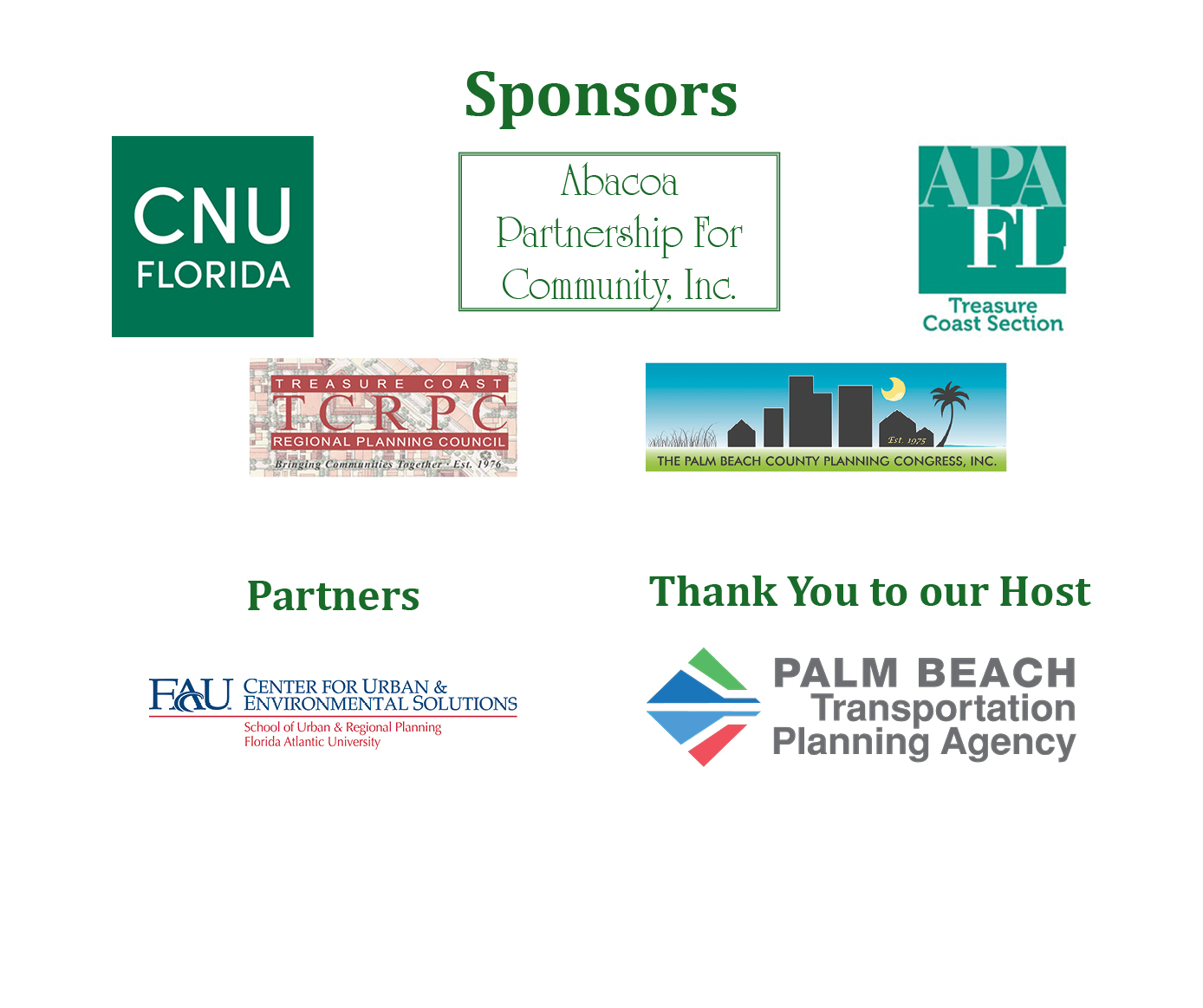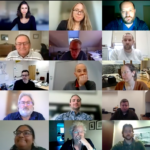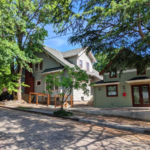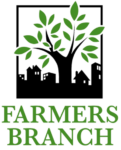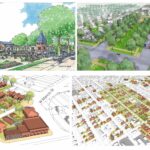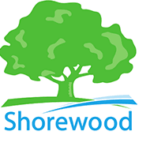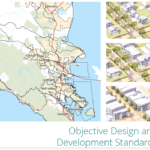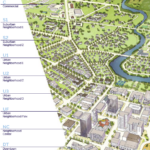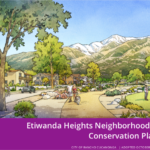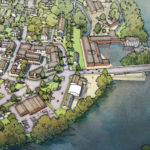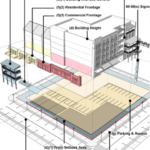FBC 201: Placemaking with Form-Based Codes – West Palm Beach, FL – March 11 & 12
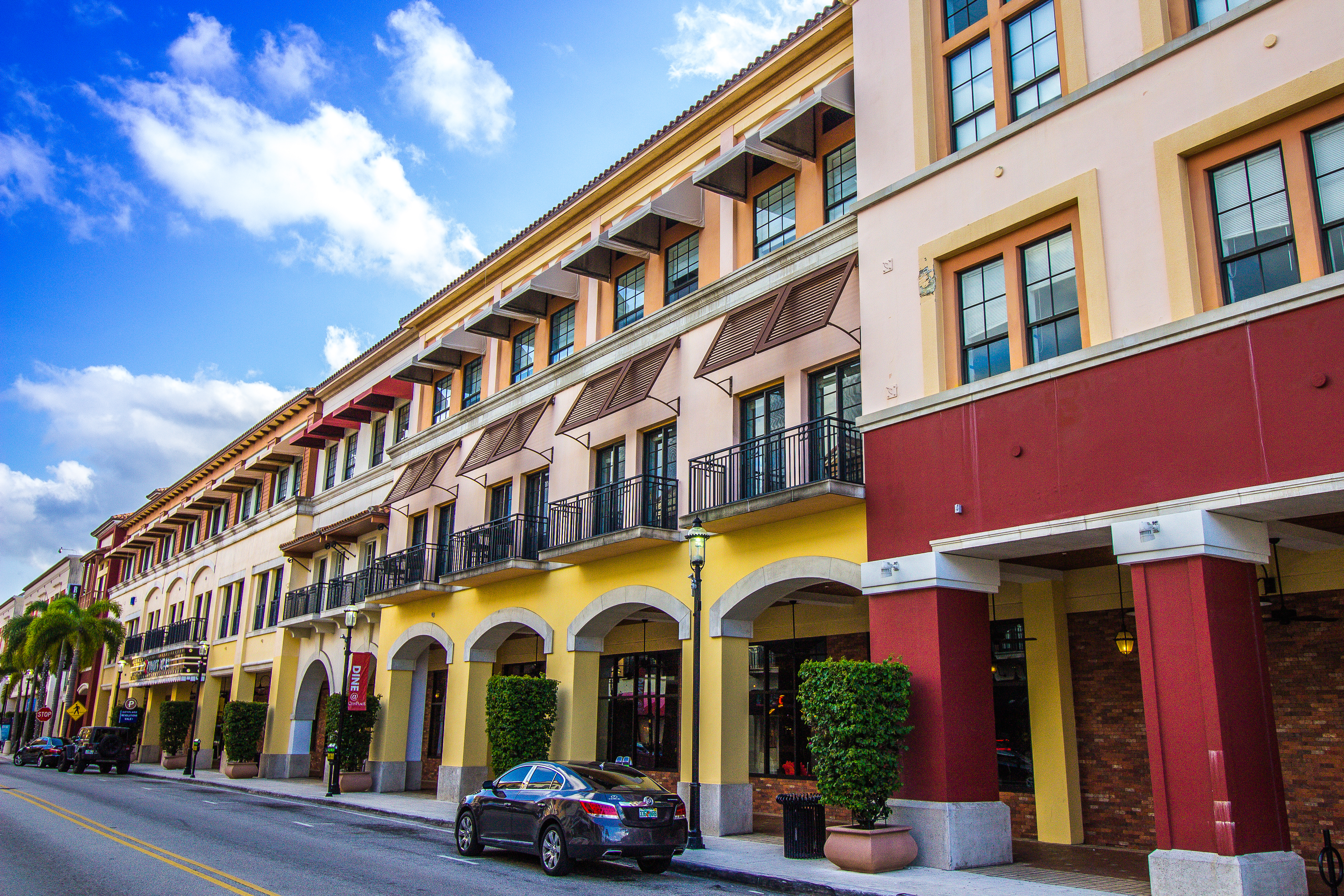 Downtown West Palm Beach (Image: Robin Mehdee via Flickr)
Downtown West Palm Beach (Image: Robin Mehdee via Flickr)
Summary
FBC 201: Placemaking with Form-Based Codes
Wednesday, March 11 & Thursday, March 12
Palm Beach Transportation Planning Agency Offices
301 Datura Street
West Palm Beach, FL 33401
Click HERE for venue and parking map
Pending eligibility for 16 AICP CM
This two-day course provides an in-depth understanding of how to guide good urban form through a regulatory framework. Participants learn to create form-based codes by drawing upon an area’s best urban elements to conceptualize the elements that shape public space and community character. Instructors delve into the basics of urban form, combining lecture and case studies with “hands-on” participatory exercises in the essential tasks of coding.
The course uses presentations and interactive discussions to enhance participants’ knowledge of urban design at the scale of the building and building types, the street and street types, the block and the neighborhood. Participants work together to apply theory and practice as they create a vision and regulatory elements of plan for an illustrative area. Instructors and panelists discuss unexpected design challenges, and explore design possibilities for greenfield sites, redevelopment areas, already built-out communities and regional plans.
Click the tabs above to see agenda and instructors.
Lodging
Lodging recommendations are forthcoming.
Agenda
The following is a preliminary agenda.
A final agenda will be ready one week before the start of the class.
8:00 – 8:30 AM Light Breakfast and Registration
8:30 – 9:00 AM Welcome / Course Highlights / Introductory Discussion — Marta Goldsmith
Topics covered: An introduction to FBCI and the course; participants’ objectives and desired takeaways; coding issues in your community.
9:00 – 10:00 AM Urban Form Basics: Streets & Other Urban Places — Joe Kohl
Topics covered: Street-Space, the core concept of form-based coding and the fundamental contrast with conventional zoning. Also, the network, context, and types of streets; the elements of street cross-sections; overcoming barriers to complete streets; and resources for creating great streets.
10:00 – 10:15 AM Break
10:15 – 11:00 AM Urban Form Basics: Private Building Principles & Types — Justin Falango
Topics covered: The role of buildings to form the public realm and frame and protect the private realm; the palette of building types that make up a city and how they work.
11:00 – 11:45 AM Urban Form Basics: The Urban Block — Joe Kohl
Topics covered: The structure of the urban block and how it organizes public space vs. private space, (buildings, streets, rear service). How urban blocks define the physical structure of the places we inhabit
11:45 AM – 12:45 PM Lunch on Your Own
12:45 – 1:30 PM Urban Form Basics: The Urban Neighborhood — Justin Falango
Topics covered: The role of neighborhoods in healthy communities; the neighborhood as the basic building block of towns and cities; and the mix of uses and hierarchy, function and location of appropriate streets
1:30 – 2:30 PM Walking Tour of Clematis Street — All Instructors
Topics covered: Instructors will lead a short walking tour of south West Palm Beach and Clematis Street. Participants will take notes and discuss the urban design features that should be reflected in their vision plans created during part one of the exercise.
2:30 – 3:45 PM Large- and Small-Scale Urban Design Examples — Justin Falango & Joe Kohl
Topics covered: Built examples of projects at the scale of street, block, and building. Examples of larger scale projects and how the design principles in form-based codes are applied to real projects.
3:45 – 5:00 PM Exercise: Part One – Creating a Vision Plan — All Instructors
Topics covered: This two-part exercise explores the fundamental process of form-based coding—that of creating regulations based on a community vision. Instructors will work with class participants to translate a community vision into form-based regulations. Class participants will learn how to extract the necessary information from a vision plan, deciding what to regulate in order to implement the community vision.
In this first part of the exercise, participants will create a Vision Plan for a set of urban blocks. The resulting plan will be the basis for Exercise Two, which will create a regulatory framework to implement the vision.
5:00 PM End of Day One
DAY TWO
8:00 – 8:30 AM Light Breakfast
8:30 – 9:00 AM Instructor-led Discussion on Exercise Part One — All Instructors
Topics covered: Participants will share their notes and insights from the exercise.
9:00 – 10:00 AM FBCs : Creativity and Constraints — Justin Falango
Topics covered: What a code constrains and what it doesn’t; creativity in the “street wall;” FBCs and design guidelines; architectural creativity under a form-based code. Mistakes made, lessons learned.
10:00 – 10:15 AM Break
10:15 AM – 12:15 PM Exercise: Part Two – Selecting and Writing Regulations — All Instructors
Topics covered: In this second part of the exercise participants explore the fundamental process of form-based coding—creating regulations, which are based on a community vision. Participants will extract the necessary information from the vision plan created in Part One, deciding what and to what degree, to regulate.
12:15 – 1:15 PM Lunch on Your Own
1:15 – 2:00 PM Instructor Comments on Exercise Part Two
2:00 – 3:00 PM Implementing Form-Based Codes: Implications for Affordable Housing
Moderator: Marta Goldsmith
Panelists: Josh Martin & Rogelio Madan
Topics covered: Form-based codes have gained positive momentum in Florida as a legitimate alternative to Euclidian zoning. Many communities from Miami to Davie have adopted form-based codes. This session will feature practitioners from several Southeast Florida communities who will discuss their experiences in administering their codes and the implications for the development of affordable and mixed income housing.
3:00 – 3:15 PM Break
3:15 – 4:00 PM Roundtable Discussion
Topics covered: Broad theme of sustainability. How form-based codes are used to promote walkable, mixed-use urbanism. Energy policy, resiliency and return on investment for local governments. Local questions and concerns. “Parking Lot” issues identified throughout the class. Looking ahead to FBC 301.
4:00 PM End of Course
Instructors
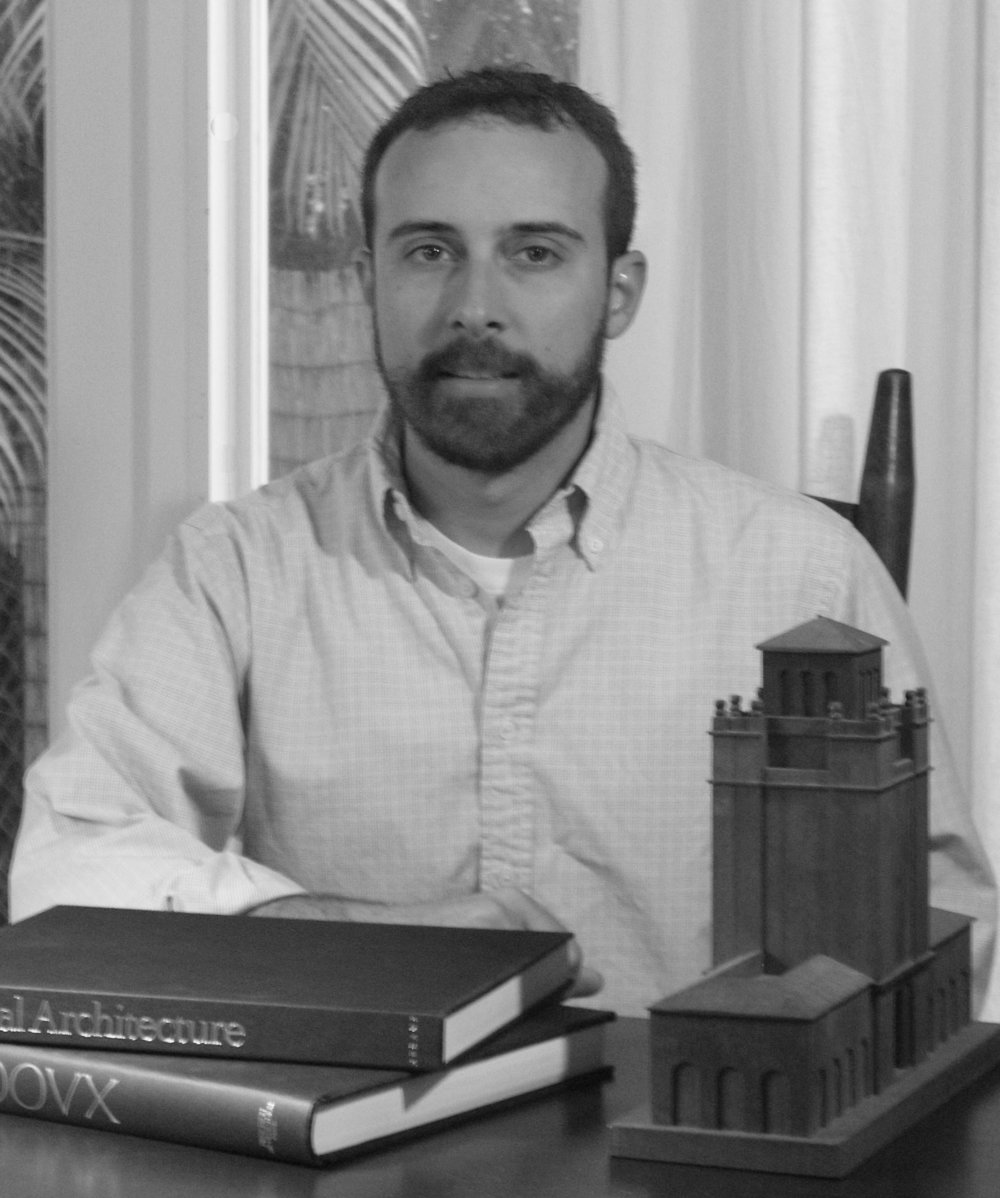
Justin Falango is an architect and urban designer by trade who has been involved with scores of projects throughout the US and abroad over the last 15 years. His extensive work with form-based codes, master plans, and architectural design guidelines has helped many municipalities and developers ensure appropriate and sustainable growth. Justin has a unique understanding of form-based code implementation, having previously served as the Chief Architect & Urban Designer for Arlington County, Virginia, where he helped to administer the code for Columbia Pike, and was closely involved with the approval of new development throughout the County during his tenure.
Justin is certified planner (AICP), and a registered architect in New Hampshire and Florida. He earned a B.A. in Architecture from Lehigh University, and two Master’s degrees from the University of Miami in Architecture and Urban Design. Justin lives in New Hampshire where he serves on the local Planning Board, consults on a range of planning work, and teaches urban design at Virginia Tech.
 Joe Kohl has been practicing professionally with Dover, Kohl & Partners, based in Coral Gables, Florida, since 1987. His clients have taken him across the United States and around the world to create master plans and development regulations for existing neighborhoods and new communities. He has co-authored form-based codes for several Florida municipalities and for Hercules CA, Beaufort SC, Lemont IL, and Jeddah Saudi Arabia. He is a board member of the Form-Based Codes Institute and also serves as the organization’s treasurer. Joe has degrees in architecture and urbanism from Virginia Tech and the University of Miami.
Joe Kohl has been practicing professionally with Dover, Kohl & Partners, based in Coral Gables, Florida, since 1987. His clients have taken him across the United States and around the world to create master plans and development regulations for existing neighborhoods and new communities. He has co-authored form-based codes for several Florida municipalities and for Hercules CA, Beaufort SC, Lemont IL, and Jeddah Saudi Arabia. He is a board member of the Form-Based Codes Institute and also serves as the organization’s treasurer. Joe has degrees in architecture and urbanism from Virginia Tech and the University of Miami.
 Marta Goldsmith is the Director of the Form-Based Codes Institute where she oversees all programming, including technical assistance, educational offerings, and the Driehaus Award for Form Based Codes. Prior to joining Smart Growth America, Marta was Senior Vice President and Chief Operating Officer at LRG, Inc., a public affairs and nonprofit management firm. She has served as Senior Adviser to the Commissioner of the Public Buildings Service, GSA and Chief Operating Officer of the Institute for Transportation and Development Policy (ITDP), a global NGO that advises cities in emerging economies on sustainable transport and urban development projects.
Marta Goldsmith is the Director of the Form-Based Codes Institute where she oversees all programming, including technical assistance, educational offerings, and the Driehaus Award for Form Based Codes. Prior to joining Smart Growth America, Marta was Senior Vice President and Chief Operating Officer at LRG, Inc., a public affairs and nonprofit management firm. She has served as Senior Adviser to the Commissioner of the Public Buildings Service, GSA and Chief Operating Officer of the Institute for Transportation and Development Policy (ITDP), a global NGO that advises cities in emerging economies on sustainable transport and urban development projects.
Prior to her tenure at ITDP, Marta worked at the Urban Land Institute, where she was responsible for a wide range of programs, including land use policy research and publications, advisory services, community outreach, international programs, and fundraising. Marta has served as Executive Director of the Southern Governors Association and as Special Assistant to the Governor of Florida where she covered community and economic development, housing, and transportation issues in the Florida-Washington Office.
She has taught planning courses at the University of Virginia and was selected as a W.K. Kellogg National Leadership Fellow. Marta earned her master’s degree in City Planning from Harvard University and a BSc in Sociology from Indiana University.
Panelists:
Rogelio Madan is the Chief of Community Planning and Sustainability at the City of Miami Beach Planning Department. He joined the City of Miami Beach in 2014. Between 2007 and 2014, Rogelio was a planner at the City of Miami Planning and Zoning Department.
While at the City of Miami, Rogelio participated in the development of the Miami 21 form-based zoning code, revamping of the City’s Comprehensive Plan, and the review of several major developments and neighborhood plans that are visible today.
At the City of Miami Beach, Rogelio was the primary author of the North Beach Town Center – Central Core (TC-C) neighborhood form-based code which was adopted in 2018 and is now encouraging major sustainable developments. He has also authored amendments to the City’s zoning ordinance to incorporate sustainable development practices, establish a mobility fee program, improve regulation uses, and encourage the revitalization of neighborhoods. He has also worked on major updates to the City’s Comprehensive Plan to establish a Climate Resiliency and Sustainability Element and require other sustainable practices. Rogelio has also participated in the preparation of concept plans for parks and infrastructure improvements.
Josh Martin possesses over eighteen (18) years of public, private, and non-profit sector urban planning experience. Josh currently serves as the Managing Principal of Sustainable Settlement LLC based in Palm Beach and Miami Beach, Florida. Previously, Josh served as the Director of Planning, Zoning, and Building for the Town of Palm Beach, Florida, and as the Senior Advisor on the Built Environment to the Mayor of the City of Charleston, South Carolina. As Director of Planning & Strategy at Turnberry Consulting US, Josh led numerous strategic development projects including urban infill projects; development feasibility and financial studies; retail and commercial schemes; regional and community master plans; and the implementation of the retrofit of suburbia. Josh also served as the City of Charleston’s first-ever Director of Planning, Preservation, and Economic Innovation under the direct supervision of Mayor Joseph P. Riley, Jr. As a private consultant, Josh operates within the realms of urban planning, urban design, project management (consultant team management), entitlements including vast experience and success in the US, UK, and Canada. As a result, Josh maintains an inimitable understanding of the development review, public outreach, and entitlement processes involved with land regulation as well as codifying master planning efforts via innovative zoning mechanisms that yield places worth caring about. Josh’s unique approach to coding and incentivizing physical redevelopment involves tools that are easy for the public sector to administer and easy for the private sector to understand thus creating “business-friendly” redevelopment areas in towns, districts, and cities. Professionally, Martin has been consistently active in the Congress for the New Urbanism, American Planning Association, Urban Land Institute, Next City, Bloomberg Associates, and the Seaside Institute.
TCRPC Members: Click HERE to register
Public Sector: $500
Private Sector: $575
Registration is now closed for this course.
